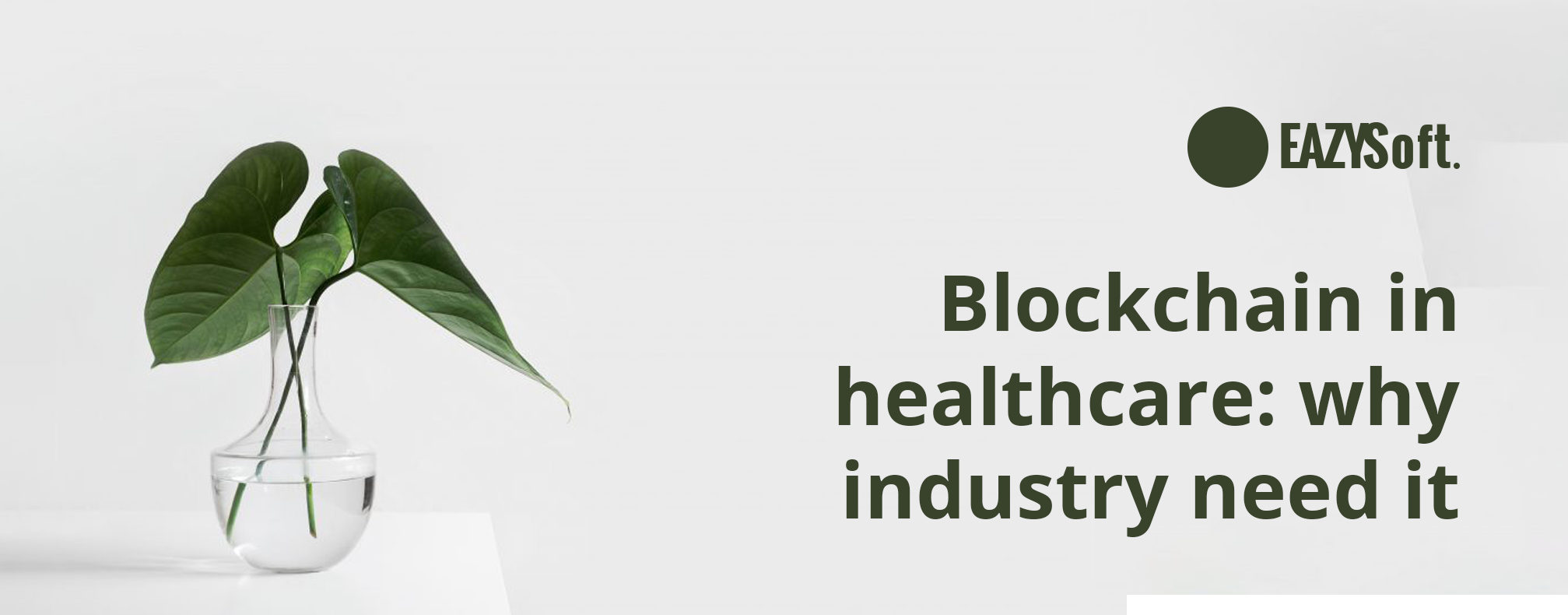
Blockchain in healthcare: why industry need it
Healthcare Rallies for Blockchain found that 16% of surveyed healthcare executives had solid plans to implement a commercial blockchain solution in 2017, while 56% expected to by 2020. But why is it so popular? Let’s find out!
What is a blockchain?
In general a blockchain is defined as a distributed system which records and stores transaction records. More specifically, blockchain is a shared, immutable record of peer-to-peer transactions built from linked transaction blocks and stored in a digital ledger. It is also similar to a database which stores information, however the main difference is that the blockchain data is located in a network of personal computers called nodes where there is no central entity such as a government or bank.
Opportunities for health care
Blockchain technology has the potential to transform health care, placing the patient at the center of the health care ecosystem and increasing the security, privacy, and interoperability of health data. This technology could provide a new model for health information exchanges (HIE) by making electronic medical records more efficient, disintermediated, and secure.
Moreover blockchain has widespread implications for stakeholders in the health care ecosystem. Capitalizing on this technology has the potential to connect fragmented systems to generate insights and to better assess the value of care. In the long term blockchain network for electronic medical records may improve efficiencies and support better health outcomes for patients.
To sum up, here are 5 ways blockchain can benefit healthcare:
1. Ability to make a full archive
Patient’s disease registries, lab results, treatments, information from inpatient, ambulatory and wearable data-assisting providers — everything can be achieved with blockchain for in one place.
2. Single identification system
Sometimes healthcare data get mismatched or duplicated, because EHRs have different schemas of data sets. With blockchain, the entire data set is hashed to a ledger, so when doctor will search information, he’ll will use a single patient identification.
3. Claims adjudication
Since blockchain works on a validation-based exchange, the claims can be automatically verified where the network agrees upon the way a contract is executed. Moreover absence of central authority causes less errors or frauds.
4. Supply chain management
Blockchain-based contracts can assist healthcare organizations in monitoring supply-demand cycles through its entire lifecycle. For example, how is the transaction taking place, whether the contract is successful or if there are any delays.
5. Interoperability
Interoperability can be realized by the use of sophisticated APIs to make EHR interoperability and data storage a reliable process. With blockchain network being shared with authorized providers in a secure and standardized way, that would eliminate the cost and burden associated with data reconciliation.
Nowadays we can see, that blockchain technology presents numerous opportunities for health care; however, it is not a panacea that can be immediately applied. Several technical, organizational, and behavioral economics challenges must be addressed before a health care blockchain can be adopted by organizations nationwide.
